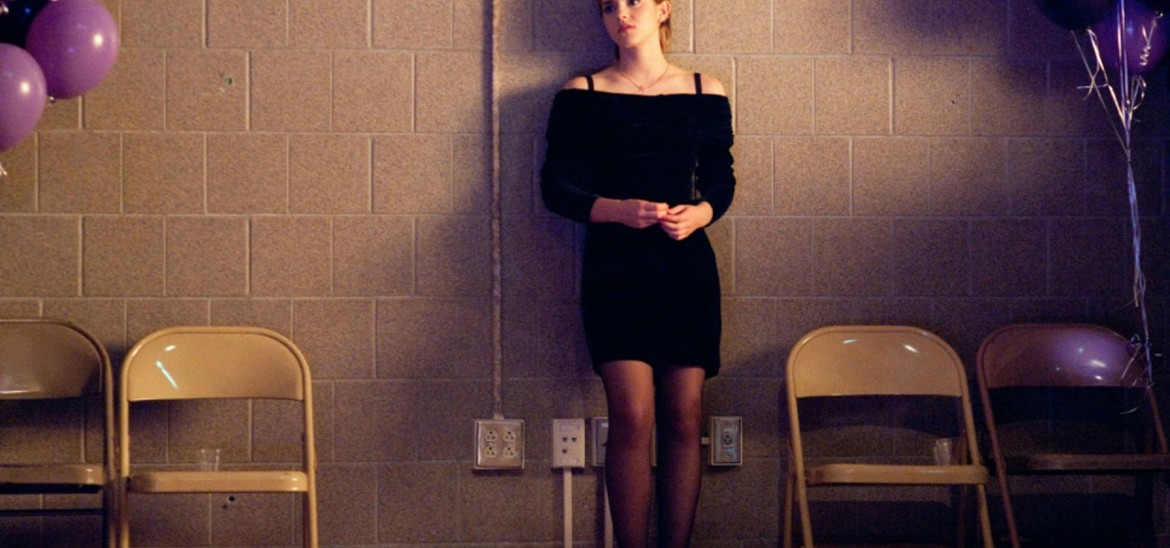Into Film Clubs
Find out everything you need to know about starting an Into Film Club.



To mark Empathy Week (26 Feb - 1 Mar), Sarah Downing, Media Lecturer and Teaching and Learning Coach for Action Research at Stratford upon Avon College, explains how using film in the classroom can help develop empathy in young people.
Empathy is the ability to understand another person's feelings and show sensitivity to their experiences.
Responding with compassion can help us to develop meaningful connections and enhance emotional safety. Empathising with others can not only improve the receiver's mental wellbeing, but can also offer cognitive and emotional benefits for the empath, including feelings of value and compassion satisfaction, the amount of pleasure derived from helping others. Consequently, it be argued that embedding lessons on empathy into the curriculum can be valuable for young people to help develop their emotional socialisation and their ability to listen to and understand each other.
I am a teacher in further education and since the start of the COVID-19 pandemic, I have witnessed a higher number of students expressing mental health concerns. In particular, my learners have shown increased anxiety surrounding the requirements of their academic studies, including exam preparation and coursework deadlines. This has led me to consider ways that I can support my students and help them to improve their mental wellbeing to develop their resilience and encourage their progress.
As a media teacher and Into Film Education Ambassador, I am an advocate for the social and academic value that film can provide. I recognise the emotional impact that films can have for audiences, and I have been inspired to focus my PhD research on using film in the classroom to develop students' abilities to show empathy and improve their own mental wellbeing. Films can encourage viewers to connect with characters from a variety of backgrounds, who experience situations which they will not have personally encountered. Therefore, audiences can be swept along by narratives that encourage them to experience a range of emotions for characters that they feel connected to.
My research is focused on students who are resitting GCSE English Language in Further Education. This decision was driven by my awareness of the pressures that young people face when retaking a qualification alongside a vocational subject.
I have designed three lessons which explore representations of mental wellbeing and empathic relationships on screen, and I am exploring whether teaching empathy skills can encourage the learners to increase awareness of their peers' emotions, while also inspiring them to ask for help when they need it.
The aim of the lessons is to encourage a supportive atmosphere in the classroom and build interpersonal communication between students who often feel despondent about the need to re-sit the qualification. They are also designed to increase students' academic skills, as an appreciation of empathy correlates with the AQA GCSE English Language specification, which requires students to complete a creative writing task and consider and compare writers' perspectives and viewpoints.
The selected scene shows Bing-Bong, the imaginary friend of protagonist Riley, realising that the world in which they played together is being demolished as Riley grows up and moves on. Bing Bong is broken-hearted by this experience, and the scene presents the different approaches that his friends, Joy and Sadness, use when attempting to console him. It encourages the students to compare each characters' communication and to recognise that expressing empathy can give strength to another person when they feel heard and understood.
The 'married life' opening sequence presents Carl and Ellie's relationship from their wedding day, up until their old age, when Ellie passes away. Throughout the montage, the audience witnesses the couple's love for one another and the ways that they manage their life together, including day-to-day routines, their hopes and dreams, and personal losses. The students are shown how the couple's care for each other supports their mental wellbeing through difficult times, and are encouraged to empathise with Carl when he is left to continue his life without Ellie.
In the opening scene, teenager Charlie expresses his anxiety about returning to school following an absence caused by a mental breakdown. The students are encouraged to reflect on a time when they have felt anxiety about a new experience and consider how a different way of thinking could improve a person's mental wellbeing.
A series of articles that highlight how the medium of film can be used to teach a wide variety of subjects and themes.
View other Articles in this columnViewing 4 of 4 related items.

Find out more about our streaming service, designed specifically for UK schools.